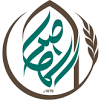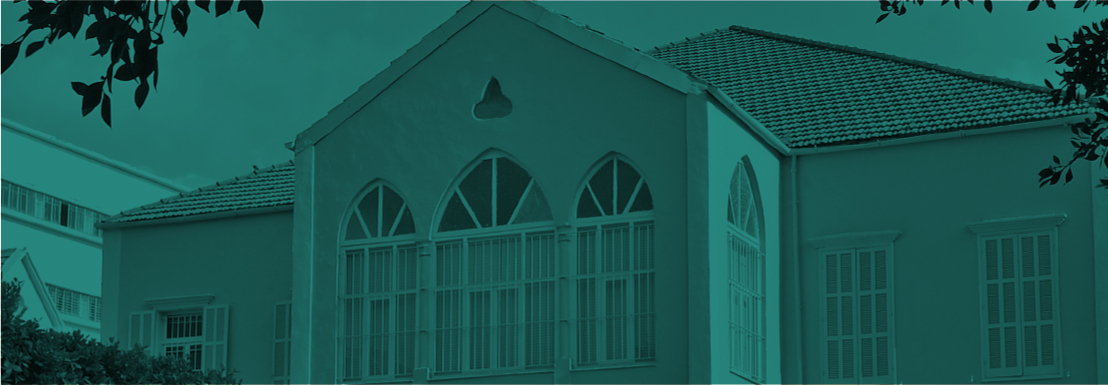As part of our ongoing commitment to maternal health, during this quarter, we continued implementing the Shabake 2 Project subsidized by Expertise France. This project aims to provide comprehensive maternal health services to 141 pregnant women of all nationalities and age groups. The project is being carried out between April 15, 2024 and May 31, 2025, at our Horj and Bachoura Primary Healthcare Centers. In alignment with the Ministry of Public Health’s maternal care protocol, the service package includes eight consultations (three with a midwife and five with a physician), two ultrasounds, a complete laboratory test package, eight awareness sessions, postnatal and pediatric follow-up visits, and referral to mental health services when required. Beneficiaries of this project were receiving the delivery services at Makassed General Hospital.
As of this reporting period, the project has achieved 73% of its target—103 out of 141 deliveries have been completed (96 NVD, 7 CS), with 38 still to be achieved (32 NVD, 6 CS). Moreover, under the UNFPA project “Supporting Reproductive Health Services in Lebanon through PHCs and MMUs,” Makassed has been providing essential health services to individuals affected by the ongoing conflict. Launched on October 15, 2024 and completed on March 31, 2025, the project initially focused on displaced populations residing in schools and shelters. It later expanded to cover vulnerable individuals in affected neighborhoods. In Beirut, two Mobile Medical Units (MMUs) were actively covering Tarik Jdideh, Sabra, Nwayri, Horj, Bachoura, Basta, and Msaytbeh, while in Akkar, one MMU served the areas of Wadi Khaled, Koneyse, Rajem Hussein, Arha, Sahle, and Hnayder. The service package included internal medicine, OBGYN, and midwife consultations, laboratory tests, pelvic ultrasounds, mammography and breast ultrasounds, medication distribution, awareness sessions on SRH and GBV, psychosocial support, and referrals to Primary Healthcare Centers. 100% of the targeted 3,150 women have received OBGYN consultations, and the outreach awareness campaign has reached 5,440 individuals, achieving a 107% of the target.
Additionally, the Smoking Prevention Program, implemented under the Ministry of Public Health, was initially launched at Msaytbeh Primary Healthcare Center in February 2024, paused in September 2024, and then resumed on December 15, 2024, and now successfully completed. The program is currently being implemented at the Horj Primary Healthcare Center. This program aims to raise awareness among smoking patients about the health risks associated with tobacco use and support those who are motivated to quit. Nurses at the PHC conduct assessments and educational sessions with patients, and those willing to quit are referred to a general medicine physician for prescription of tobacco alternatives, such as nicotine gum, to ease withdrawal symptoms. In collaboration with the American University of Beirut (AUB) team stationed at Horj PHC, patients receive these alternatives and ongoing guidance throughout their cessation journey, supported by both the physician and nurse. Furthermore, the American University of Beirut, in partnership with the World Diabetes Foundation (WDF) and the Ministry of Public Health (MoPH), have launched a new initiative aimed at reducing the burden of non-communicable diseases (NCDs) among vulnerable populations in Lebanon, including Lebanese citizens, refugees, and migrant communities across all age groups. Funded by WDF and managed by AUB, this initiative is being implemented at Msaytbeh Primary Healthcare Center and is focusing on the early detection of hypertension and diabetes through comprehensive NCD screening and diagnostic testing. The initiative officially began on June 30, 2024, and is scheduled for completion by November 30, 2025, with implementation led jointly by AUB and the Ministry of Public Health.
In collaboration with the Ministry of Public Health, Makassed has launched a comprehensive primary healthcare initiative (REAYA) aimed at improving access to essential services for vulnerable Lebanese populations affected by the ongoing crises. This project, started in September 2024 and continuing through March 2026, targets beneficiaries identified through the Emergency Social Safety Network (ESSN) database, with the list curated by the Ministry of Social Affairs. Services are delivered through Makassed Horj Primary Healthcare Center and are tailored based on the age and medical condition of each patient. The package includes immunization programs to prevent the spread of infectious diseases, essential medical consultations, chronic and acute condition screening and follow-up, and ongoing health education to promote disease prevention and healthier lifestyles. The project also ensures access to essential medications and provides referrals for laboratory and X-ray services, along with specialty consultations when required. This initiative takes a holistic approach to healthcare by addressing both immediate medical needs and long-term well-being for the most at-risk communities.
To address the pressing health needs of vulnerable communities, International Medical Corps (IMC) has supported Makassed in implementing a comprehensive health project at Wadi Khaled Primary Healthcare Center in Akkar. Through this initiative, beneficiaries have had access to a wide range of medical consultations, including Pediatrics, OBGYN, Cardiology, General Medicine, Orthopedics, Endocrinology, and Midwifery care. The project also ensured the availability of crucial diagnostic services, including chronic disease diagnostics, mammography, breast ultrasounds, and thyroid stimulating hormone (TSH) testing, along with appropriate follow-up interventions. IMC further supported the center by facilitating home care visits to improve access and ensure continuity of care. Additionally, the project has provided medical supplies and medications based on ongoing demand. To ensure sustainability, IMC is currently training the PHC’s focal point and quality officer, as well as engaging the wider community, with the goal of maintaining the same level of quality care even after IMC’s direct support concludes.
The Wadi Khaled PHCC, in collaboration with International Orthodox Christian Charities (IOCC), is providing transportation support to the families that have malnourished cases whether children or pregnant women. Moreover, the Wadi Khaled Primary Healthcare Center recently signed a cooperation agreement with Al-Rahma Medical Complex to enhance access to community-based rehabilitation services for individuals with special needs. This partnership, effective from March 15, 2025, until December 31, 2025, includes the free provision of assistive devices and physical therapy sessions, aiming to improve the quality of life and functional independence of beneficiaries in the region.
As part of its school health initiative, Makassed, through the Soha Madrassiye Program, has been delivering vital health services and education across multiple educational institutions. The program currently covers five governmental schools in Beirut, five Makassed schools in Beirut, five Makassed schools in the Beqaa region, and three Makassed schools and six governmental schools in North Lebanon. All schools receive annual physical examinations to support early detection and management of potential health issues. However, only Makassed schools benefit from additional awareness sessions on key health topics such as nutrition, personal hygiene, and physical changes during adolescence, which are designed to promote healthier behaviors. Furthermore, water quality testing is conducted exclusively in Makassed schools in Beirut to help ensure a safe and healthy school environment. On April 8, 2025, a comprehensive accreditation mock visit was conducted at Horj Primary Healthcare Center as part of ongoing efforts to align with the updated ISQUA standards issued by the Ministry of Public Health in 2023. The process entailed an in-depth internal review of services, policies, and documentation to ensure compliance with national quality benchmarks. Emphasis was placed on continuous staff training, covering key protocols, patient safety, and infection control measures, all aimed at enhancing the delivery of safe and standardized healthcare services. In preparation for the visit, Horj PHC underwent holistic renovations, including general maintenance, and strengthened technical infrastructure. The surveyors commended the staff for their exceptional commitment and performance, highlighting their dedication to providing quality healthcare to the Makassed Association. The final report will include detailed assessments along with recommendations for further improvement.


